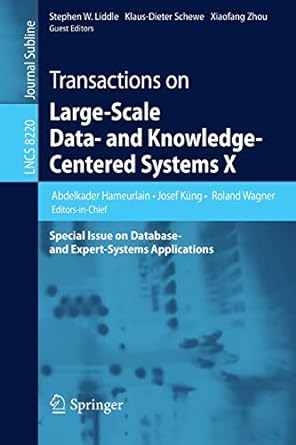Question
For each of the following languages give a regular expression that matches the strings in the language. Note: You can use . (i.e., a dot)
For each of the following languages give a regular expression that matches the strings in the language. Note: You can use . (i.e., a dot) to denote any character in the alphabet.
(a) [5 marks] The language, over the lower-case English alphabet, = {a, b, ..., z}, of strings that start and end with vowels (assume y is a vowel).
(b) [5 marks] The language of binary strings, = {0, 1}, that do not contain the substring 01.
(c) [5 marks] The language, over the alphabet of decimal digits, = {0, 1, ..., 9}, of strings that represent integers divisible by 4.
Step by Step Solution
There are 3 Steps involved in it
Step: 1

Get Instant Access to Expert-Tailored Solutions
See step-by-step solutions with expert insights and AI powered tools for academic success
Step: 2

Step: 3

Ace Your Homework with AI
Get the answers you need in no time with our AI-driven, step-by-step assistance
Get Started


